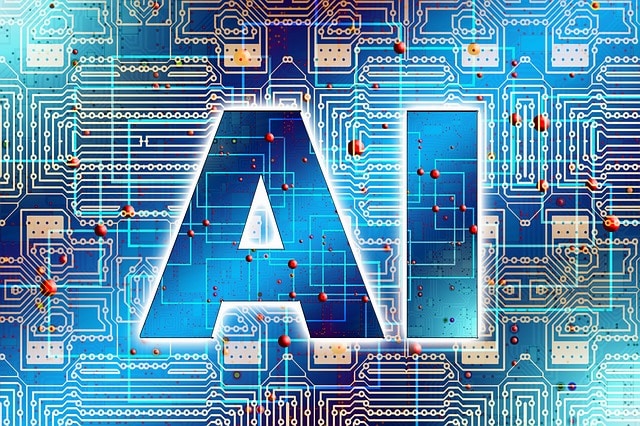Will AI Write Novels? Latest Perspectives, Tools & Techniques
Imagine this: a novel written so adeptly by a machine that it is indistinguishable from the human hand. Imagine a book that adequately satisfies both readers and the commercial market while virtually containing no flaws and whilst having been composed with little to no fuss. But how can such a novel even exist?
Enter Artificial Intelligence.
The introduction of AI to our lives has always been a matter of time. Though it does seem to be moving forward at an undeniably rapid speed, anyone with an inkling of the advances in tech in the past 20-30 years has already been primed for its arrival and is most likely avidly anticipating it. Some of us are already — and possibly unknowingly — using AI-based software right now (Grammarly, anyone?). It is really no big surprise and should not be deemed a threat.
AI has already made its way into multiple industries. But where does it stands as far as creative writing and publishing goes?
AI in the Publishing Industry

Writers and creatives have always had a love-hate relationship with tech. Publishers, on the other hand, and those authors who treat themselves as a business, are constantly keeping track of the latest trends in tech (and if they aren’t, they should) and eager to make use of them.
And to be fair, AI has already been flirting with fiction for years now thanks to transformer language models like OpenAI’s GPT-2 (2019) and other means of story-generation that predated it. Just look at NaNoGenMo (an offshoot of NaNoWriMo), which has been running annually since 2013 and allows authors to generate 50k-word novels through source code. In Japan, the Nikkei Hoshi Shinichi Literary Award has been accepting “non-human applicants” since 2016. Google too has been infusing AI and writing (and has even created AI poetry), welcoming users to join in on their fun experiments.
By the looks of it, novel-writing AI is already here. Aspiring authors, creatives, and coders are avidly experimenting with it for leisure but how can publishers, who are actually businesspeople, benefit from it?
The Benefits of Using AI as a Publisher or Author
As a publisher or author who would like to try their hand at AI novel-writing software, the following benefits seem highly likely:
1) They will be able churn out more books — constantly. In a frenetic market like that of self-publishing, both publishers and authors understand the implications that come with delayed publication: reader interest wanes, fans recede, and the brand loses its touch with its audience. Come AI novel-generating software, the process of writing a book can most definitely speed up.
2) Writer’s block will cease to be a problem. This is truly a boon for authors who are short on time and potentially suffer from a lack of inspiration or deal with emotional blockages. Imagine not being able to come up with a good hook for your first sentence or being unable to finish that sagging middle that’s been torturing you for months. With AI software, you can generate ideas when you’re blocked, as if having another writer pitching in and offering a helping hand.
3) Publishers will save money on editors. While this may be a drawback for editors, it’s a big win for publishers and self-published authors who can’t afford to pay hundreds or thousands of dollars to have a single book edited. With AI changing the game, novels will look better, read better, and be improved overall.
As you can see, the benefits are quite substantial and will greatly streamline both the writing and publishing processes.

There are various AI-based products publishers and authors can start using as of right now. Some can simply predict text while others can generate full paragraphs and even entire novels.
- Story-Generating AI
Generating text with AI is no surprise, but creating a storyline or whole novel with AI may initially seem like a joke — unless you actually try it. And it doesn’t end there, as AI can also generate stories specifically for articles and marketing copy. Here’s some AI software I recommend trying out:
- StoryAi, an implementation of OpenAI’s GPT-2 774M transformer language model, is one of the most popular ways to generate a story with artificial intelligence. While it can get glitchy (it can take a while to generate the story if and when the submitted sentence is accepted) it is a good example of how AI can create a full story.
- Story Generator is an AI story-generating tool by Bored Humans, similar to StoryAi. Using machine learning, Story Generator claims to create unique stories and attempts to filter out offensive content.
- Converse Smartly is a speech-to-text software that converts audio to text and can additionally analyze dialogue and speech through its cutting-edge speech-recognition technology. You can use it to dictate a story, a recorded conference meeting, and anything in between.
- Frase is an AI text generator that keeps the search engines in mind. While it may not be the top choice for generating novels, it is a highly recommended tool for journalists and marketers with a focus on SEO and lead generation.
- Phrasee is another AI product aimed towards marketers. It specializes in generating copy specifically for social media (like Facebook), email, etc.
More tools like the ones above are expected to be released. Until then, many authors are also experimenting with AI writing assistants.
- AI Writing Assistants
AI-powered “writing assistant”-style apps, extensions and programs can help authors improve their writing, the most popular author-oriented tools being:
While an AI writing assistant cannot generate a full novel, some of the software can certainly help you get one started or improve your existing work.

Will AI eventually write full novels? Yes, I believe it will. I also believe that competing with AI as an author is a good excuse to improve your quality and perfect your craft. If you don’t, AI will potentially do it for you.
As the founder of Scribando, a company that focuses predominantly on trends-monitoring, I have a positive viewpoint on AI. Things that we have been imagining for years are finally at technology’s forefront. It would be unreasonable and quite demeaning to humanity’s technological efforts to believe that this is a fad, a bogus idea, or even a threat to creativity. Authors, creatives and publishers are still, and always will be, irreplaceable and greatly needed, but why shouldn’t they have a helping hand, too?
Albert Griesmayr, MBA, is founder & CEO of Scribando | Novelify. As a book marketing consultant for more than 100 publishers and authors, he has worked on projects resulting in more than 2 million copies combined sold worldwide. Learn more about successful book publishing by visiting: https://albertgriesmayr.com and https://scribando.com.





0 Comments